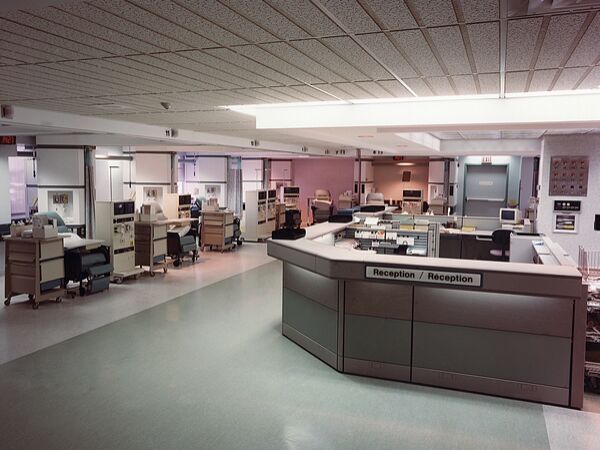Career Planning
|
Preparing for Your Interview
Plan Your Onsite Interview
Onsite visits should be an exciting part of your job search. While the interview portion can be intimidating and exhausting, you will potentially be exploring a new city and region of the country.
Expect at least one visit per prospective practice.
In some cases you may have the opportunity to go on a second-look interview as well, which is recommended if you can.

Onsite visits should be an exciting part of your job search. While the interview portion can be intimidating and exhausting, you will potentially be exploring a new city or region.

Expect at least one visit per prospective practice. In some cases you may have the opportunity to go on a second-look interview as well, which is recommended if you can.
For site visits, it is customary for the prospective practice to cover all associated costs, and in most cases they will cover costs for your spouse, and possibly your children.
These visits should help you get to know the practice, hospital, and community. Carefully planning your visit will ensure the most productive and effective use of your time.
Have an Organized System for Record Keeping
As you start to receive information and various details about the practices you’re interested in, it will be important to ensure you maintain a good process for keeping track of the details.
Ideally you will have a system that allows for side by side comparisons of the practices you visit.

This will not only help you remember the important aspects of the position and job requirements but it will also ensure you are not asking for repeat details or asking the same question more than once.
Your organization skills also demonstrate to your prospective colleagues that you are serious about your career, their position, and you are committed to finding a good fit.
Develop Your Itinerary
Many programs will have a fairly honed and structured interview process and agenda, however you may be asked if there are aspects to the trip that you want to be sure to incorporate.
Plan for at least one to two days, and if you can manage it, incorporate a weekend stay into your trip by scheduling the actual interview at the end or the beginning of the work week.
Interviews can vary widely from site to site, but you will likely have four to twelve hours of interviewing time over the course of 1-2 days. There is often an evening dinner with practice partners and spouses.
Be sure the agenda includes time for exploring the unit, practice, and hospital, as well as the community, local scene, and housing market.

Schedule time with a real estate agent. A good agent will not only provide you with options for housing but can also be an excellent community ambassador and local tour guide. He or she should be able to help ensure you consider at least some of your personal needs when making your decision.
Depending on your situation, you may wish to incorporate school or college tours and schedule time with local administrators. If finding a place of worship is a priority, seek out local churches, mosques, or synagogues.
It is important to not only base your decision on the practice itself, but also the local community and whether or not you think you (and your spouse or family) will thrive.
Bring Your Spouse or Significant Other
Including your spouse or significant other is very common and highly encouraged.
Wise practices know that this is a big decision and that your spouse could well be the deciding factor in your decision.

In some cases, a program may wish to have you visit alone for a first assessment, and then if there appears to be mutual connection, they will arrange for a second-look visit to include your spouse and possibly children.
Definitely take advantage of any second-look interviews you are afforded. You often notice very different aspects at this second visit, and it will help to either solidify your decision or clue you in that you should keep looking.
Your family will likely have different perspectives and assessments of their ability to live and possibly work in this location. Trust their instincts. Having their buy-in and support increases the chance of a long-term fit.
Request Program Informational Packets
One may have been sent to you, but if not, don’t hesitate to reach out and request some practice or hospital overview material.
Any information provided in the packet, such as marketing materials, annual reports, job description, or local area guides, will be helpful for your interview planning and preparation.

Ideally, these materials will provide you with additional details of the position, practice, hospital, and group structure or employment model.
Most well-organized programs will also send community and visitor bureau packets, and helpful contact information to arrange any tours or to connect with a local real estate agent.
Who You Should Interview With
Your prospective employer will certainly have their usual itinerary and participants for the interview sessions.
Here is the list of people you should be interviewing with during your site visit. Don’t hesitate to make additional requests once you see the schedule provided for you.

You will likely have several panel or individual interviews that should include the following people:
- other neonatologists
- advance practice providers
- OB or MFM providers
- nursing leadership
- charge nurses
You should also request a few 1:1 sessions:
- hospital or children’s hospital administrator
- your immediate boss
- nursing unit director or manager
- neonatologists who may serve as research or mentorship roles
Here are some helpful questions for specific roles:
Additional Resources
Provides several considerations and planning tips when it comes to air travel during the pandemic.


